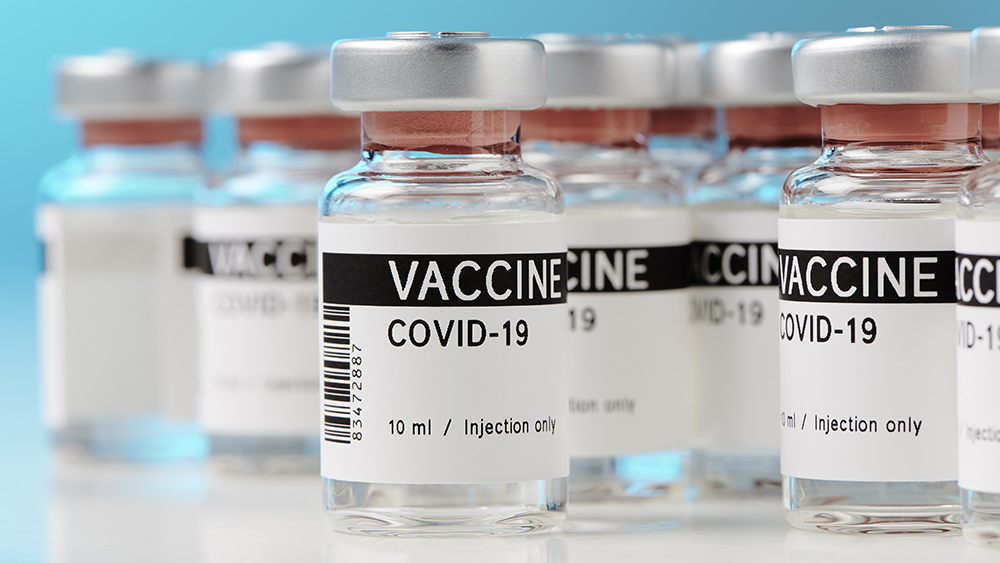Evening bright light exposure can cause your blood sugar levels to spike
01/31/2019 / By Zoey Sky

Research has proven that exposure to blue light can affect sleep quality. But did you know that exposure to bright lights at night can also affect your blood sugar levels?
The study, which was published in the journal PLOS ONE, was conducted by researchers from Northwestern University Feinberg School of Medicine (Feinberg).
Bright lights, blood sugar, and diabetes risk
In the study, the researchers found that being exposed to bright light in the morning and evening increases insulin resistance, unlike when someone is exposed to dim light at these times. When you are exposed to bright light at night, your body experiences higher peak glucose levels and insulin resistance.
Insulin resistance occurs when a person is unable to move glucose from the bloodstream adequately, which then causes high blood sugar (hyperglycemia). In time, insulin resistance can result in the formation of excess body fat and higher diabetes risk.
Insulin resistance does not normally cause obvious symptoms, but certain individuals may experience fatigue. However, pre-diabetes and metabolic syndrome, which may develop in association with insulin resistance, can cause signs and symptoms like excessive thirst, frequent urination, heart disease, high blood pressure, or weight gain.
Earlier studies concerning light exposure have revealed that subjects who received most of their exposure to bright light after 12 p.m. weighed heavier compared to those who were exposed earlier in the day. Mice constantly exposed to light gradually experienced changes in metabolism related to glucose, and this made them more likely to gain weight, compared to mice not exposed to high amounts of light.
These findings imply that insulin was unable to bring glucose back to baseline levels after a meal when subjects are exposed to bright light in the evening. The study results highlight that daily light exposure and the environment can significantly affect your health.
Blue light vs. dim light
The findings from these previous studies indicate that dark and light exposure times can affect bodily functions and that it is crucial to determine the ideal pattern for overall well-being.
In the Feinburg study, researchers analyzed the immediate effects of three hours of exposure to blue-enriched light in the morning or evening, compared with dim light exposure during the same times. The researchers tracked and studied its effects on metabolic function, hunger, and physiological arousal. (Related: Experts say that children exposed to bright light at night may develop health complications as adults.)
The scientists observed 19 healthy adults, with the participants being divided into a morning bright light exposure group (0.5 hours after waking) and an evening group (10.5 hours after waking). The results of light exposure were then compared with each volunteer’s dim light exposure results to determine a baseline.
The evening group was instructed to eat their dinner in light and the morning group ate their breakfast while exposed to bright light.
Based on the results, blue-enriched light exposure acutely changed metabolic functioning in both groups compared with dim light exposure. Both resulted in higher insulin resistance, but the researchers noted that evening exposure caused higher peak blood glucose levels. The results also revealed that insulin was unable to manage increased blood sugar in the evenings.
When you are exposed to artificial light, your brain’s pineal gland may get confused. When this happens, it can disturb melatonin production. Aside from regulating sleep cycles, melatonin is also a cancer-fighting substance. Melatonin also prevents neurodegenerative diseases by regulating circadian rhythms, mood, sleep quality, and other factors.
Additionally, melatonin can help clean up free radicals. The substance also has antioxidant and immunomodulatory qualities. When your melatonin production is hindered, you are at greater risk of developing cancer and other health problems.
Try to limit your exposure to bright lights at night by making small changes. Don’t use your phone for at least two to three hours before you sleep at night, and expose yourself to lots of bright light during the day.
You can read more articles about research findings on diabetes at DiabetesScienceNews.com.
Sources include:
Submit a correction >>
Tagged Under:
artificial light, blood sugar, blood sugar imbalances, blood sugar levels, blue light, body fat, bright lights, circadian rhythms, diabetes, disrupted sleep, electronic gadgets, glucose, high blood sugar, insulin resistance, light, light exposure, melatonin, metabolism, mind body science, mood, sleep habits, sleep quality, Smartphones, television screens
This article may contain statements that reflect the opinion of the author
RECENT NEWS & ARTICLES
COPYRIGHT © 2017 RESEARCH NEWS





















